What’s the Difference Between Sock & Fingering Yarns?
As a newer knitter, the smorgasbord of yarns on the market can be confusing and overwhelming, from lace to jumbo weight, and every yarn in between. You want to work with a fingering-weight yarn, but why do some say sock yarn? The yardage and thickness are the same. So, what’s the difference between fingering and sock yarns? How do you make sense of all these labels?
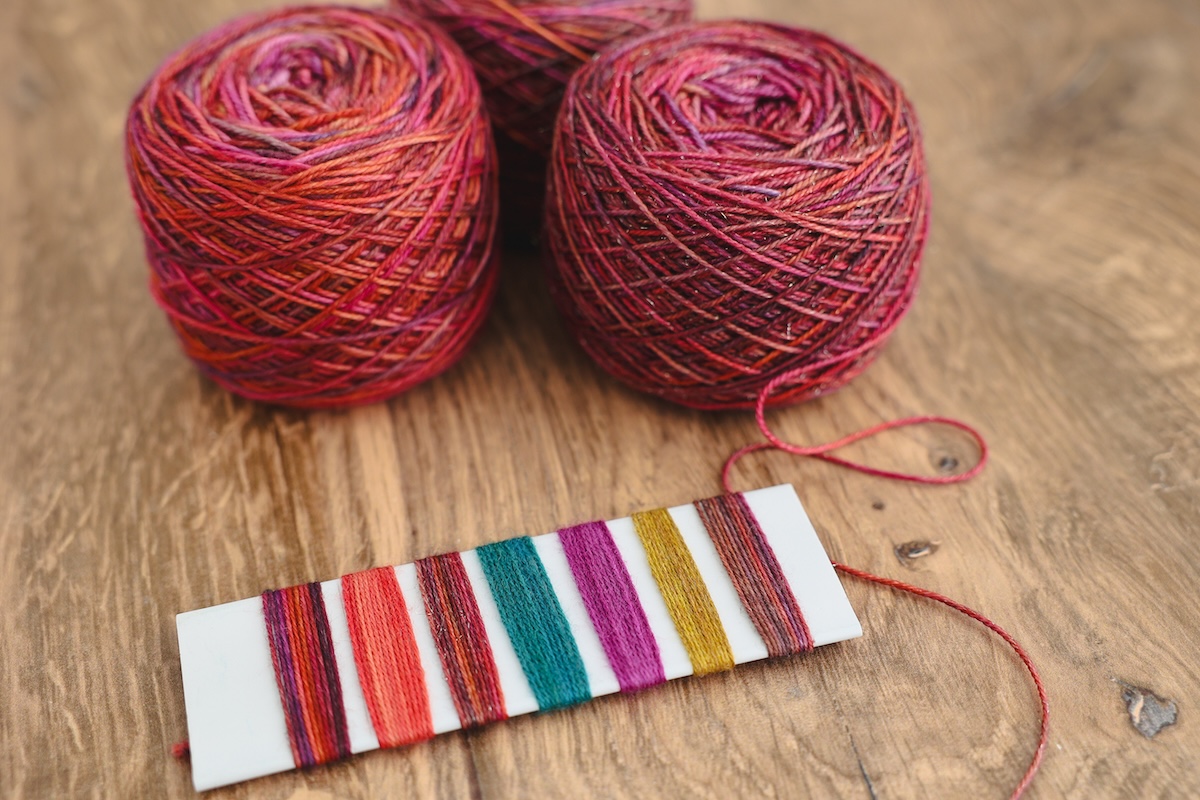
check out Tabetha Hedrick’s article, Demystifying Yarn Weight.
Yarn Construction
Before we get started, let’s clarify the terms singles and ply(ing). If you examine any yarn closely, most can be untwisted to reveal several threads. Each thread is a single, and twisting multiple singles together is known as plying. If you count the number of threads plied together in a yarn, you can see if it is a 2-, 3-, or 4-ply yarn (or sometimes more plies!). If the yarn cannot be separated into multiple threads, it is a singles yarn. Singles yarns are sometimes incorrectly called 1-ply, but since the yarn hasn’t been plied with anything, the correct term is a singles yarn.
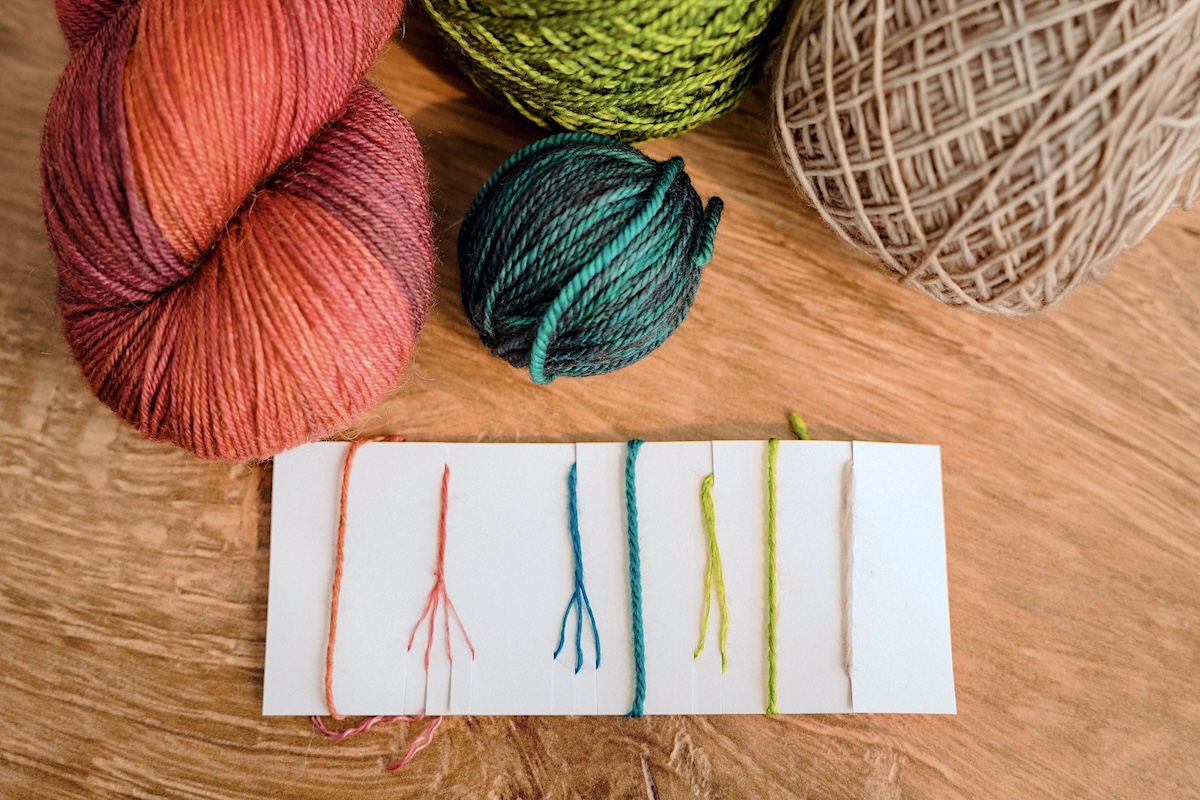
Fingering vs. Sock Comparison
Fingering Yarns
- Definition: Can be used for various projects. They are referred to as fingering-weight, since they fall into a category of yarn weight. They are also called superfine yarns. In countries like New Zealand, Australia, and many places in Europe, they are often referred to as 4-ply yarns.
- Weight/Thickness: Fingering yarns fall between lace and DK-weight yarns.
- Wraps Per Inch: 16–20.
- Fibre Content: Can be anything, including wool, alpaca, acrylic, and more.
- Twist: Fingering yarns can have a low, medium, or high-ply twist, depending on their intended use. Most knitting yarns often have a medium twist for elasticity, loft, and softness.
- Purpose: Fingering yarns are designed for uses other than sock knitting. 2-ply yarns are great for lace knitting or colourwork, while yarns with more than 3 plies show off cables beautifully. Cotton yarns for hand knitting may use a chainette construction to add elasticity.
- Labelling: Fingering on a label refers to the thickness, not the purpose. Understanding yarn construction and swatching will help you determine what kind of fabric a fingering-weight yarn can produce.
- Needle & Gauge Suggestion: Typically, 7–8 stitches per inch on US 1–3 (2.25–3.25 mm) needles. Swatching is essential to ensure you like the fabric for your project.
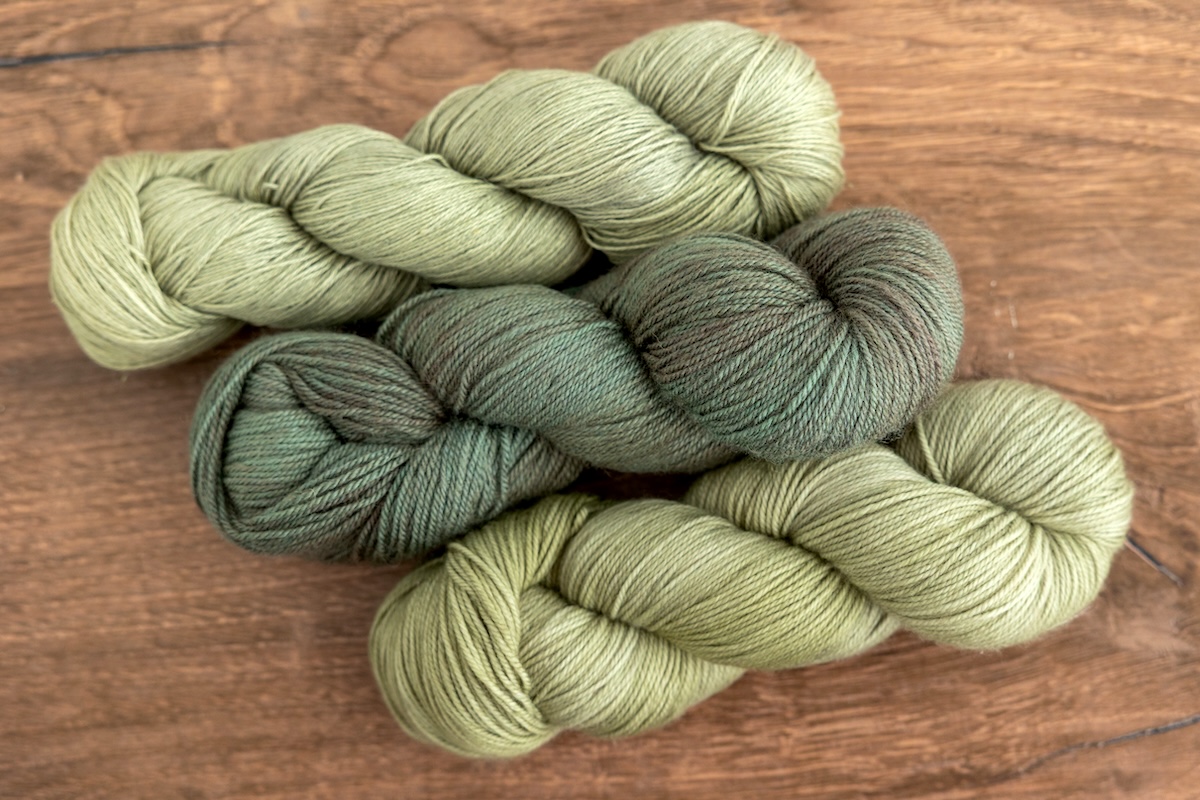
Sock Yarns
- Definition: Sock yarns are designed to withstand the wear and tear of socks. They need to be strong, stretchy, elastic, and made from fibres that allow feet to breathe.
- Weight/Thickness: Can be found in lace, fingering, sport, DK, and worsted-weight yarns.
- Wraps Per Inch: 10–30.
- Fibre Content: Often a blend of superwash wool and nylon for durability and elasticity. Superwash, also known as Easy-Care, is a wool treatment for easy laundering and helps to resist felting. Other sock fibres may include mohair, cashmere, silk, semi-synthetics (bamboo, rayon, Tencel), and cotton.
- Twist: Sock yarns usually have plied tighter compared to fingering-weight yarns, increasing resistance to wear and tear.
- Purpose: Specifically designed for knitting socks, so they’re made to withstand abrasion and frequent washing.
- Labelling: Sock yarn on a label usually means it’s suitable for socks, but it can be used for any fingering-weight project.
- Needle & Gauge Suggestion: Commonly 7–8 stitches per inch on US 1–3 (2.25–3.25 mm) needles.

Choosing SweetGeorgia Yarns for Your Projects
All SweetGeorgia yarns are designed with high-quality fibres and construction to withstand daily use. So many hours go into a textile project; seeing it look beautiful after many years is what SweetGeorgia is all about. Knitting yarns at different gauges will alter the type of fabric you produce, so remember to swatch the yarn for your intended purpose.
Tough-as-Nails Socks
If you want a pair of socks that will withstand heavy use, my first choice would be our beloved SweetGeorgia Mohair Silk Sock—previously called Bulletproof Sock—a beautifully spun, 4-ply yarn that has a blend of Easy-Care Merino wool, silk, mohair, and nylon.
My second choice would be SweetGeorgia Tough Love Sock, a 3-ply, Easy-Care Merino wool and nylon yarn. This versatile yarn is great for hard-wearing socks, and it dyes brilliantly in the full range of SweetGeorgia colours. We love this yarn so much, we offer it in sock blanks, mini-skeins, and micro-skeins, to bring colour play to as many projects as possible.

But what if you want to knit socks on a yarn base that is made of all-natural fibres? SweetGeorgia Trifecta Fine fits that bill, with a blend of Bluefaced Leicester (BFL) wool, mohair, and silk, in a beautifully soft, yet strong 3-ply yarn; Felicia Lo’s absolute favourite blend for socks.
Sturdy Mittens
Let’s explore other yarns such as SweetGeorgia BFL+Silk Fine. This is a 3-ply yarn that is perfect for mittens, shining especially in stranded colourwork!
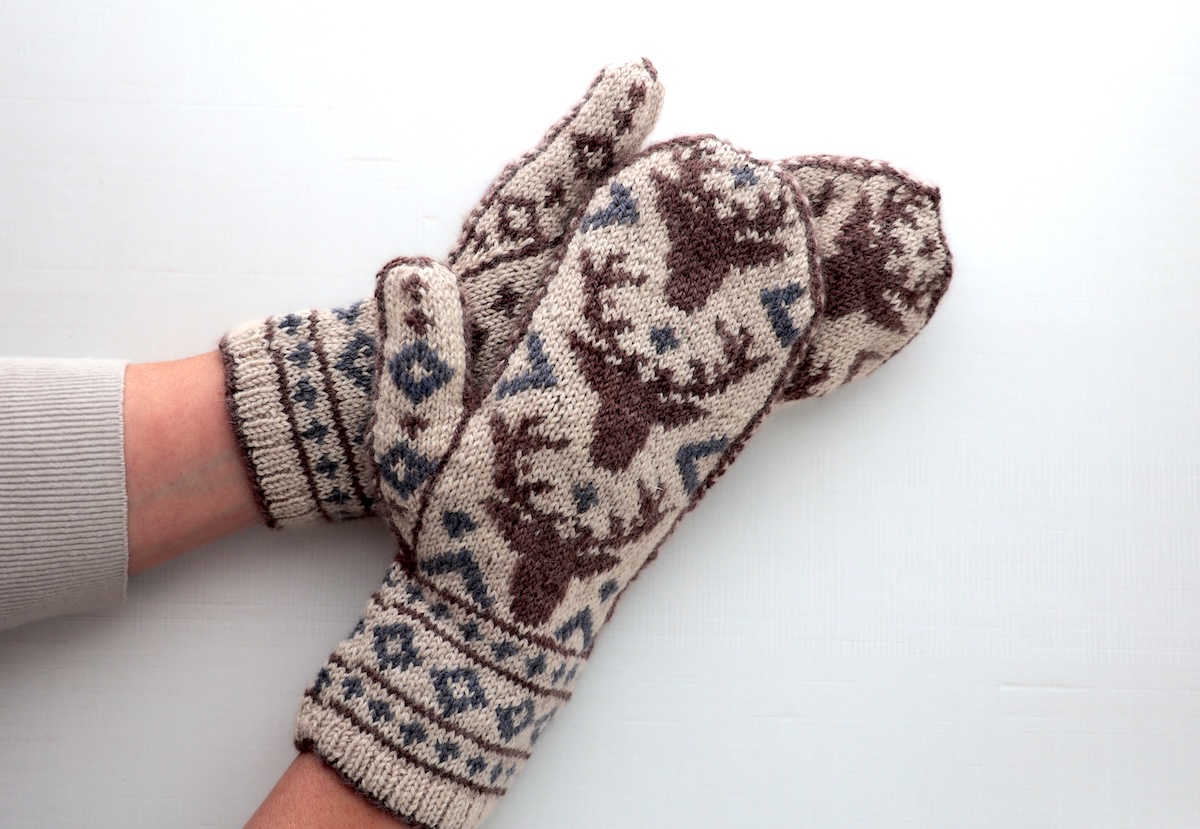
a pattern exclusive to the School of SweetGeorgia.
Luxurious Hats
All of the yarns already mentioned would make fabulous hats, but what if you want an unforgettable textile experience, both while making and wearing it?
If you are looking for a hat that will make you swoon, SweetGeorgia CashLuxe Fine will make that happen. A 3-ply, Easy-Care Merino, cashmere, and nylon yarn that is bouncy and soft, is perfect for special one-skein projects. Knit yourself a Musselburgh hat that you’ll want to keep on, whether you are in or outdoors. Or you may want some sparkle to your “soon to be most worn” accessory. SweetGeorgia CashLuxe Spark has stellina, which adds an elegant sparkle to the fabric.
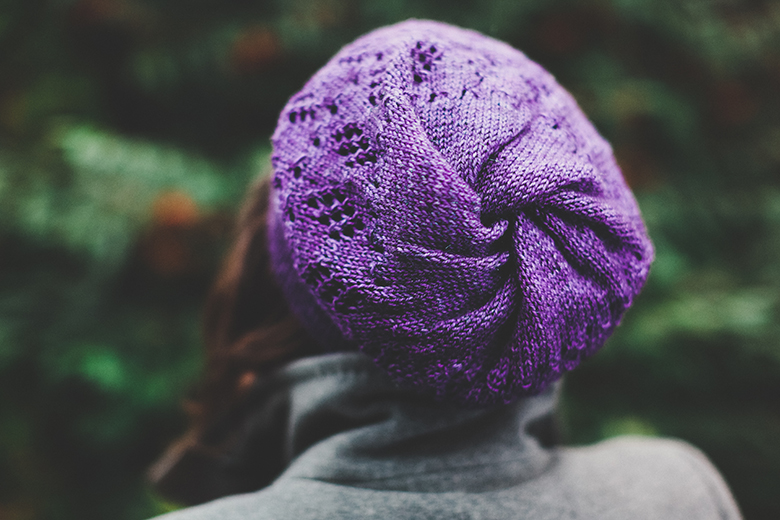
Drapey Shawls & Accessories
If you are looking for versatility, our beloved SweetGeorgia Tough Love Sock, knit in a loose gauge, will shine in drapey shawls.
If you want a touch of luxury, SweetGeorgia Mohair Silk Sock with its brilliantly dyed colours, along with its fine stitch definition, shows off the stunning texture of the crocheted Seiche shawl, as well as the lace of the knitted Plum & Custard shawl beautifully.
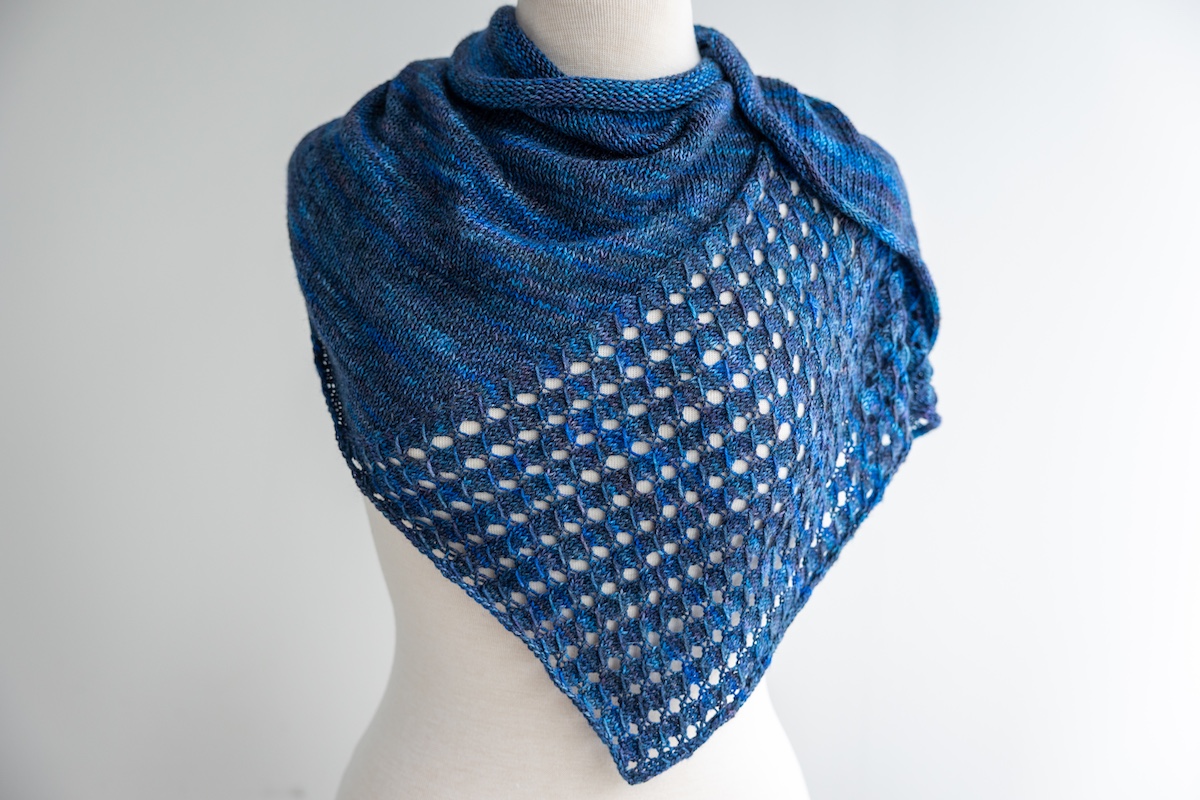
Elegant Cardigans
SweetGeorgia BFL+Silk Fine will produce garments elegant enough for a wool festival and rugged enough for a hike in the woods.
To create something truly special, like the Sparkle Cardigan, use SweetGeorgia CashLuxe Spark to make your garment ready for a night on the town.
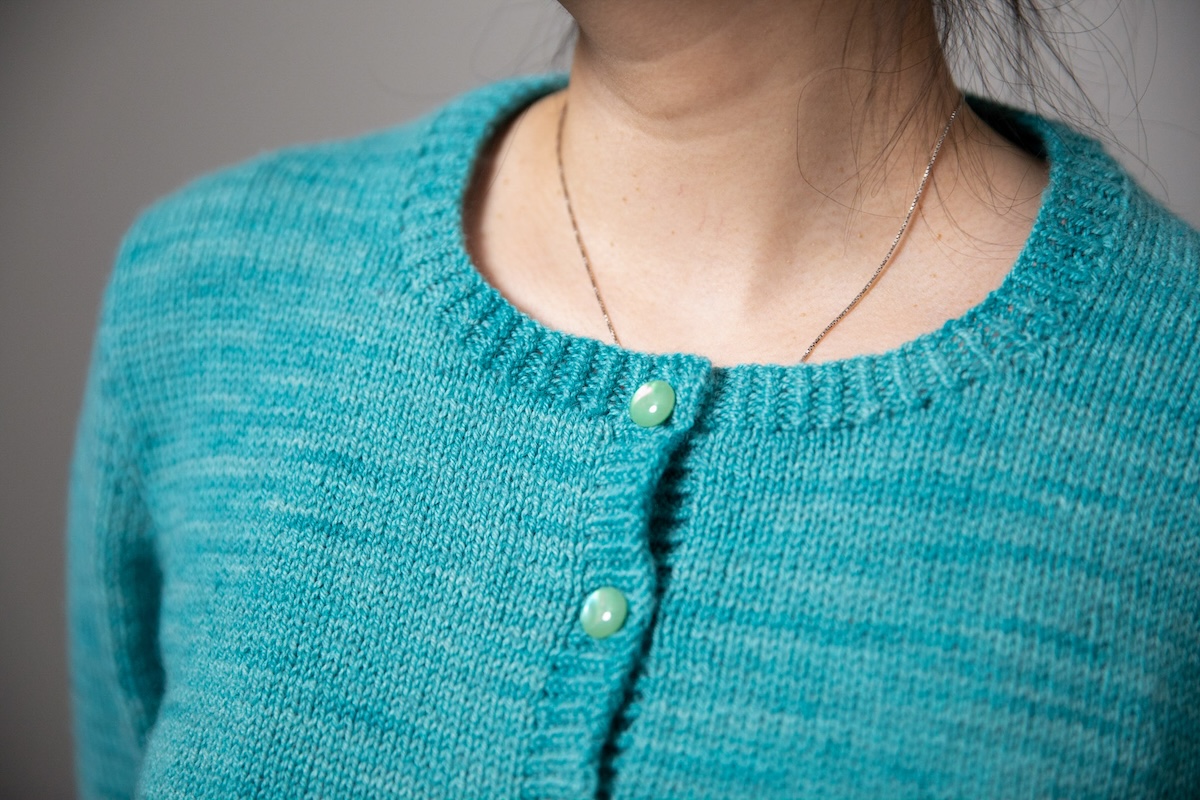
Everyday Pullovers
The ever-versatile SweetGeorgia Tough Love Sock always knits up into something that we would reach for every day.
If you’re looking for a warmer option for your outdoor needs, SweetGeorgia Trifecta Fine works great held double for a worsted-weight alternative, like we did for the Vargo pullover.
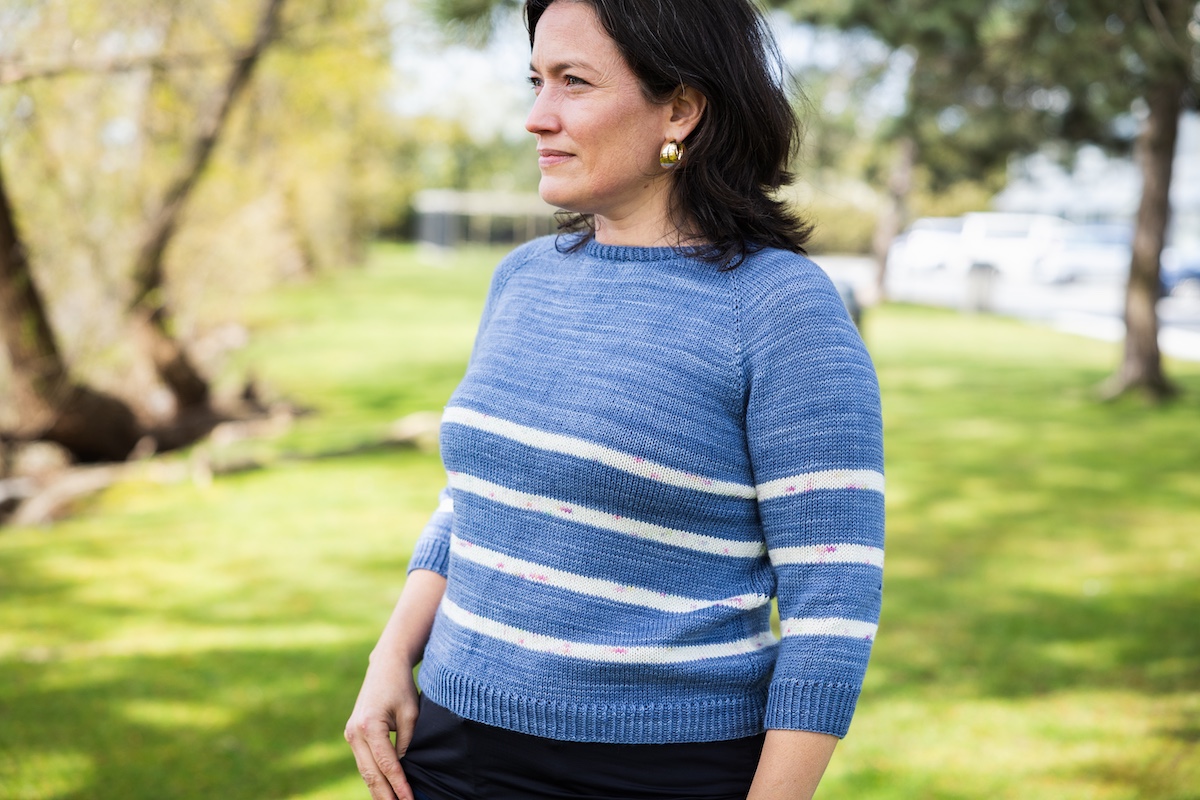
Warm-Weather Garments
SweetGeorgia Flaxen+Silk Fine yarn is a 3-ply silk and linen blend for warm-weather knitting. This light fingering-weight yarn creates a crisp yet drapey fabric, ideal for knitters seeking a wool-free option.
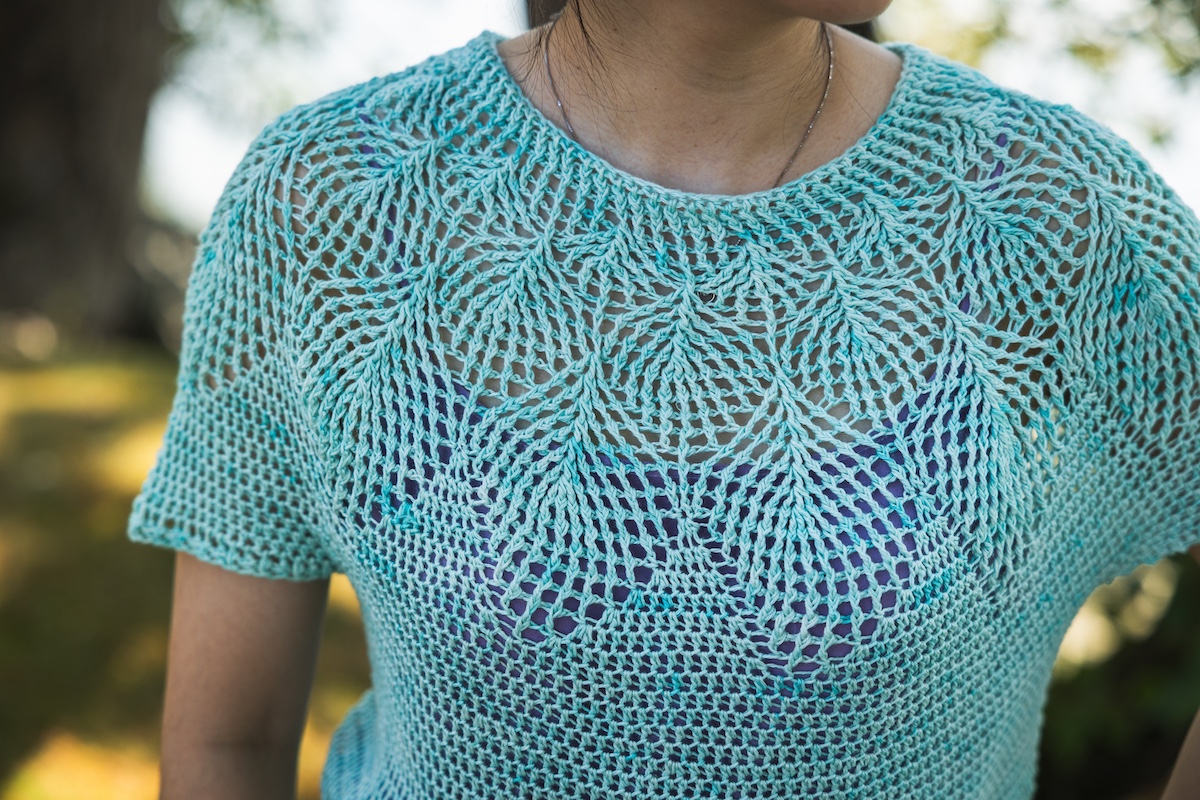
Final Thoughts
In summary, sock yarns do come in fingering-weight, but not all fingering-weight yarns are sock yarns. In many cases, fingering weight and fingering-weight sock yarns can be used interchangeably for garments and accessories. Knowing about the fibre content, yarn construction, and intended use can help you choose the right yarn for your project. Take the time to swatch with different needle sizes, as this will help you confirm if your chosen yarn is suitable for your intended purpose and pattern.
The post What’s the Difference Between Sock & Fingering Yarns? appeared first on SweetGeorgia Yarns.
Comments
Post a Comment